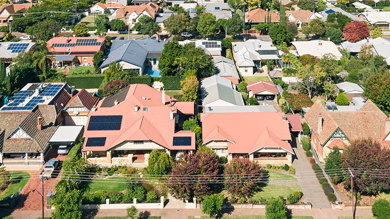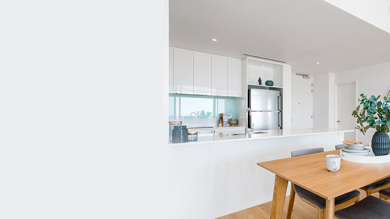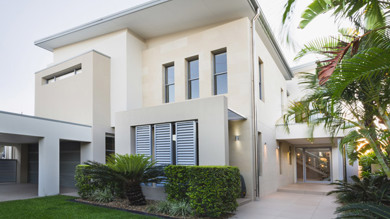
Planning your renovation budget
When planning a home renovation, all roads lead to the budget! Doing your research and costing your project upfront is essential to avoid nasty surprises down the track.
Planning your renovation budget
When planning a home renovation, all roads lead to the budget! Doing your research and costing your project upfront is essential to avoid nasty surprises down the track. But getting your head around renovation numbers can be daunting, so here are some simple tips for nailing down your budget.
1. Weigh it up
Before you commit to a renovation, do your research and talk to local real estate agents about what your property is currently worth and how much value the proposed work is likely to add. If you plan on selling your home in the short term, you need to know that your property is likely to have increased enough in value to cover your investment costs – and hopefully more! A good rule of thumb is not to spend more than 5-10% of your property value on the renovation, to ensure you don’t overcapitalise.
2. Speak to your lender
Many people need to borrow money to pay for a renovation. It’s a good idea to speak to your RAMS Home Loan Specialist early in the piece, so that you have a realistic idea of how much you can borrow and more importantly, if you have the capacity to pay it off. You might have equity in your current property to help fund – try our equity calculator to see just how much you could leverage in your current home to support your renovations.
3. Decide on the scope
The scope and size of your renovation has a direct impact on the cost. Draw up a list of ‘must-have’ and ‘nice-to-have’ inclusions, because at some point during the planning stage you may need to review this and prioritise what’s really important.
4. Get a rough guide
There are some helpful online renovation and building calculators out there. They'll give you a rough estimate of costs to help you plan. Alternatively, speak to an architect or builder to get an idea of how much things will cost. Builders often work on an amount-per-square metre model which will give you a general idea of how much you are up for. At this point if you think you’re likely to blow your budget, it might be necessary to reassess your scope.
5. Get firm quotes
Once you’ve had designs or plans drawn up and approved by council, it’s time to obtain final building quotes. Plans are essential if you want to have an accurate forecast of your renovation costs. Get at least three quotes from builders or tradespeople, you’ll be surprised at how much these can vary.
The build costs will depend on things like:
- the materials you want to use
- the tradespeople you employ
- the quality of work, fittings and finishes
- the size of the job
- the location or accessibility of your site
6. Add a 10%-20% contingency
Overspends are very common on building projects due to unforeseen costs like structural issues, outdated wiring and asbestos removal to name a few. Renovation experts recommend you add at least 10% of your project costs to your renovation budget to avoid running out of money mid-project.
7. Most importantly – have fun!
Renovating can be stressful but remember how amazing the finished product will be. If you feel you need some extra help check out Kyal & Kara’s article on how to plan a renovation for maximum impact.


